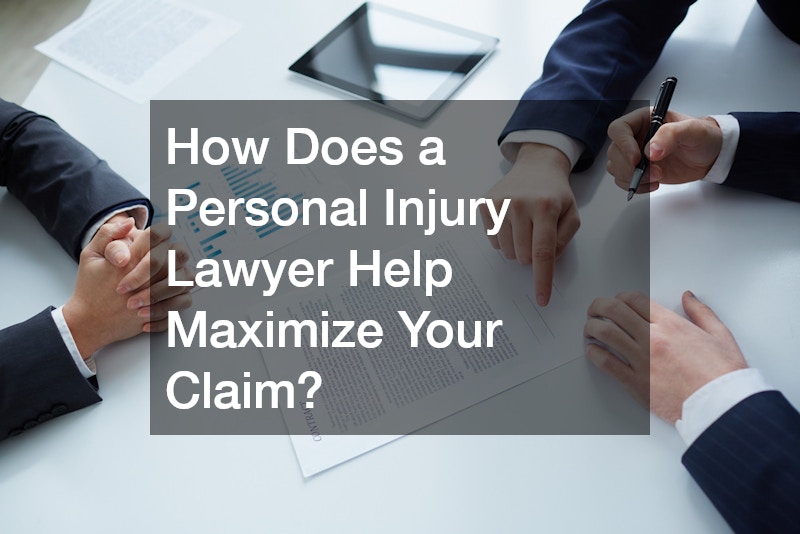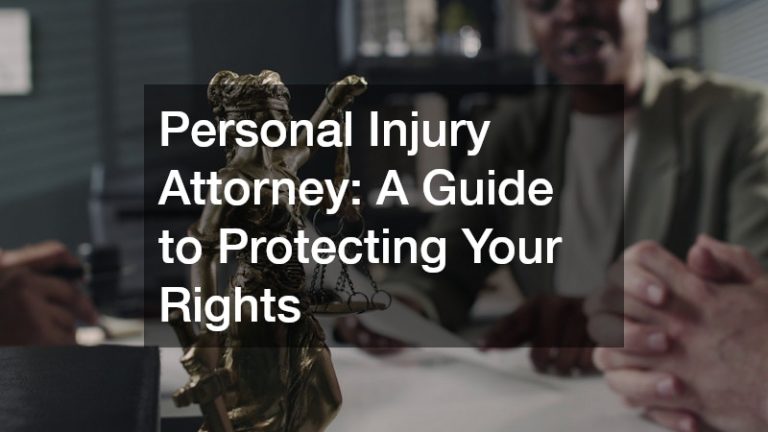Knowing When to Call a Personal Injury Lawyer—and What Happens Next

This long-form article will explore the critical aspects of seeking legal assistance after a personal injury incident. Understanding when to hire a personal injury lawyer can significantly impact your recovery journey. In this discussion, we will delve into the key indicators for engaging legal services and outline the subsequent steps in the legal process.
When Should You Consider Hiring a Personal Injury Lawyer?
A personal injury case typically arises from incidents where an individual is harmed due to another party’s negligence. Common situations include car accidents, slip and fall incidents, medical malpractice, and workplace injuries.
Recognizing these scenarios is crucial, as they often warrant the expertise of a personal injury lawyer.
Moreover, if you experience physical, emotional, or financial harm, it may be beneficial to consult with a legal professional. Legal representation ensures that your rights are protected and that you have a clear understanding of your options moving forward. Engaging a lawyer can make a significant difference in the outcome of your case.
Additionally, it’s important to assess if the injury resulted in long-term or debilitating effects on your quality of life. In such cases, having an experienced lawyer by your side can simplify the legal jargon and help you understand what damages may be applicable. This comprehension can guide you in making informed decisions about your claim.
Evaluating the severity of your injury is integral to determining whether to hire a personal injury lawyer. This involves not only understanding the physical ramifications but also considering how it affects your mental and emotional well-being. The more severe the injury, the more likely it is that hiring a lawyer would be beneficial.
Injuries that require extensive medical treatment can lead to mounting expenses, lost wages, and prolonged recovery time. A personal injury lawyer can offer insights into how these factors may influence your potential compensation claim. Knowing the full spectrum of your injury’s impact allows you to approach your case with a comprehensive strategy.
What Happens After You Contact a Personal Injury Lawyer?
The initial consultation is a crucial step in determining the viability of your case. During this meeting, you will discuss the details of your injury, the circumstances surrounding it, and any documentation you have regarding medical treatment and expenses. Being prepared with relevant information can help your lawyer assess the situation more effectively.
Lawyers often review previous medical records, accident reports, and other evidence during this preliminary stage. This information lays the groundwork for understanding the strengths and weaknesses of your case. You can also inquire about any fees upfront, as many personal injury lawyers work on a contingency fee basis, meaning they only get paid if you win your case.
Expect your lawyer to explain the potential legal pathways available and the strategies they would adopt. This transparency is vital in building trust and setting realistic expectations. If your case is accepted, the partnership between you and your lawyer is established with a mutual commitment to pursue your claim.
How Does a Personal Injury Lawyer Help Maximize Your Claim?
One of the most crucial roles of a personal injury lawyer is negotiating with insurance companies. Insurers often attempt to minimize payouts, and having an experienced lawyer can level the playing field. Your lawyer will negotiate on your behalf to ensure that the settlement offered reflects the true value of your case.
Effective negotiation requires an understanding of the law and the nuances of personal injury cases. Lawyers are skilled in articulating the full extent of damages, including medical costs, lost wages, and pain and suffering. By presenting a solid case, they are more likely to persuade insurance companies to offer a fair settlement without the need for litigation.
Additionally, if negotiations fail, your lawyer can transition the strategy to a more aggressive approach, preparing for litigation. They can outline what to expect during trial and the potential benefits of pursuing compensation through the courts. This strategic flexibility is essential in maximizing the amount you ultimately receive for your injuries.
Navigating the aftermath of a personal injury is a complex process that often requires legal expertise. Recognizing when to call a personal injury lawyer is a key step towards securing the compensation needed to address your damages effectively. The subsequent procedural steps, from consultation and evidence gathering to trial proceedings, are essential for pursuing your claim successfully.
Legal representation is invaluable not only for maximizing financial recovery but also for ensuring that your rights are protected throughout the process. The intricacies involved in personal injury cases highlight the necessity of consulting an experienced professional who can guide you effectively. Ultimately, seeking legal advice can profoundly impact the outcome of your claim, making it a critical consideration for anyone facing the challenges of personal injury.






